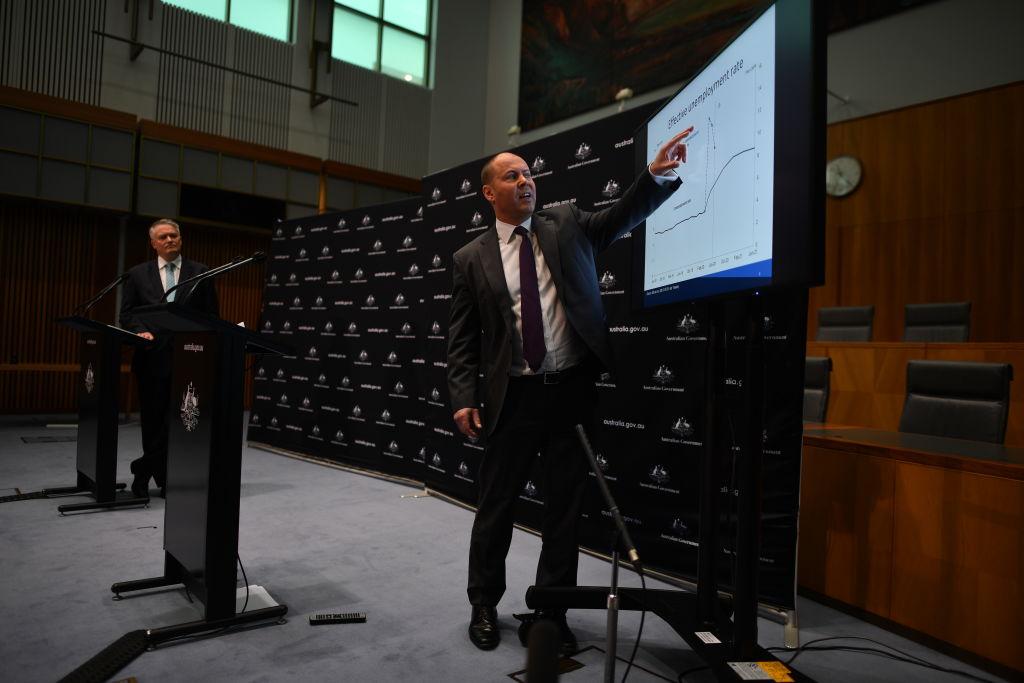CANBERRA—Federal Treasurer Josh Frydenberg says the Australian government is “favourably disposed” to extending the COVID-19 supplement dole payment beyond December.

Federal Treasurer Josh Frydenberg and Minister for Finance Mathias Cormann (left) during a press conference in the Main Committee Room at Parliament House in Canberra, Australia on July 23, 2020. Sam Mooy/Getty Images
|Updated:




